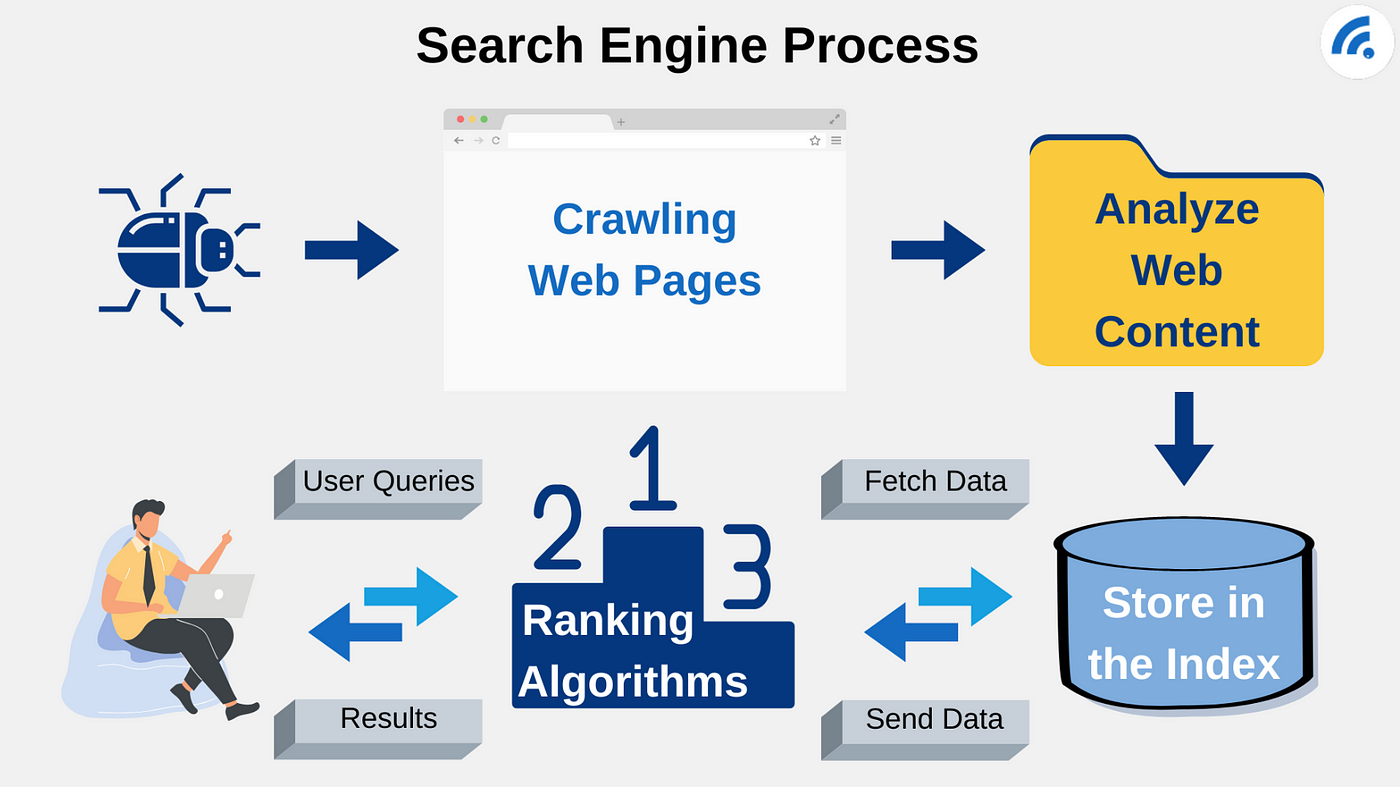Search Engine Algorithms
by Admin
Posted on 10-05-2025 05:49 PM

History of Search Engine Algorithms
The first search engine algorithms were simple and based on basic keyword matching. They would scan the web for pages that contained the keywords entered by the user and display them in a list. However, as the web grew and the number of pages increased, these simple algorithms became ineffective. The need for more sophisticated algorithms arose, and search engines began to develop more complex algorithms that took into account various factors such as link equity, content quality, and user behavior.
Understanding the Impact of Search Engine Algorithms
The way search engines rank websites is determined by complex Search Engine Algorithms that take into account various factors, including relevance, authority, and user experience, to provide the most accurate results for users.
Components of Search Engine Algorithms
Search engine algorithms are made up of several components, each of which plays a crucial role in determining the relevance and ranking of a webpage. Some of the key components include:
Crawling
Crawling is the process by which search engines discover new pages on the web. Search engines use software programs called crawlers or spiders to scan the web for new pages and update their index. The crawler follows links from one page to another, indexing the content of each page it encounters.
Indexing
Indexing is the process of storing and organizing the content of webpages in a massive database called an index. The index is used to retrieve data when a user submits a search query. The index contains information such as the page title, meta description, headings, and content.
Retrieval
Retrieval is the process of retrieving data from the index and displaying it to the user. When a user submits a search query, the search engine's algorithm scans the index for relevant pages and displays them in a list.
How Search Engine Algorithms Work
Search engine algorithms work by using a combination of natural language processing, machine learning, and complex mathematical equations to determine the relevance and ranking of a webpage. The algorithm takes into account various factors such as:
Keyword Matching
Keyword matching is the process of matching the keywords entered by the user with the content of webpages. Search engines use various techniques such as keyword extraction, synonym detection, and entity recognition to match keywords with webpage content.
Link Equity
Link equity refers to the value of links pointing to a webpage. Search engines use link equity to determine the authority and relevance of a webpage. Pages with high-quality links from authoritative sources are given more weight than pages with low-quality links.
Content Quality
Content quality refers to the usefulness, accuracy, and relevance of the content on a webpage. Search engines use various techniques such as content analysis, sentiment analysis, and entity recognition to determine the quality of content.
Evolution of Search Engine Algorithms
Search engine algorithms have evolved significantly over the years. From simple keyword matching to complex machine learning models, search engines have come a long way in providing relevant results to users. Some of the key milestones in the evolution of search engine algorithms include:
Google's PageRank Algorithm
Google's PageRank algorithm was a major breakthrough in search engine algorithms. It used link equity to determine the authority and relevance of a webpage. Pages with high-quality links from authoritative sources were given more weight than pages with low-quality links.
Google's Panda Algorithm
Google's Panda algorithm was designed to combat low-quality content. It used machine learning models to determine the quality of content and penalize pages with low-quality content.
Google's Hummingbird Algorithm
Google's Hummingbird algorithm was designed to improve the accuracy of search results. It used natural language processing and entity recognition to match keywords with webpage content.
Impact of Search Engine Algorithms
Search engine algorithms have a significant impact on the world of search. They determine the relevance and ranking of webpages, and their accuracy can make or break a website's visibility. Some of the key impacts of search engine algorithms include:
Increased Competition
Search engine algorithms have increased competition among websites. With millions of pages competing for the top spot, websites must optimize their content and structure to rank higher.
Improved User Experience
Search engine algorithms have improved the user experience. By providing relevant results, search engines have made it easier for users to find what they are looking for.
Increased Ad Revenue
Search engine algorithms have increased ad revenue for search engines. By providing relevant results, search engines can display targeted ads that are more likely to be clicked.
Challenges Facing Search Engine Algorithms
Search engine algorithms face several challenges, including:
Fake News and Disinformation
Fake news and disinformation are major challenges facing search engine algorithms. Search engines must use complex algorithms to detect and remove fake news and disinformation from their index.
Biased Results
Biased results are another challenge facing search engine algorithms. Search engines must use machine learning models to detect and remove biased results from their index.
Evolving User Behavior
Evolving user behavior is a major challenge facing search engine algorithms. Search engines must adapt to changing user behavior, such as the increasing use of voice search and mobile devices.
Conclusion
Search engine algorithms are complex and sophisticated systems that play a crucial role in determining the relevance and ranking of webpages. From simple keyword matching to complex machine learning models, search engines have come a long way in providing relevant results to users. As search engines continue to evolve, it is essential to understand how their algorithms work and the challenges they face.
FAQs
What is a search engine algorithm?
A search engine algorithm is a set of instructions that a search engine uses to retrieve data from its index and display it to the user.
How do search engine algorithms work?
Search engine algorithms work by using a combination of natural language processing, machine learning, and complex mathematical equations to determine the relevance and ranking of a webpage.
What are the key components of search engine algorithms?
The key components of search engine algorithms include crawling, indexing, and retrieval.
What is the impact of search engine algorithms on the world of search?
Search engine algorithms have a significant impact on the world of search, determining the relevance and ranking of webpages and influencing user behavior.
How do search engines combat fake news and disinformation?
Search engines use complex algorithms to detect and remove fake news and disinformation from their index.
What are the challenges facing search engine algorithms?
The challenges facing search engine algorithms include fake news and disinformation, biased results, and evolving user behavior.
